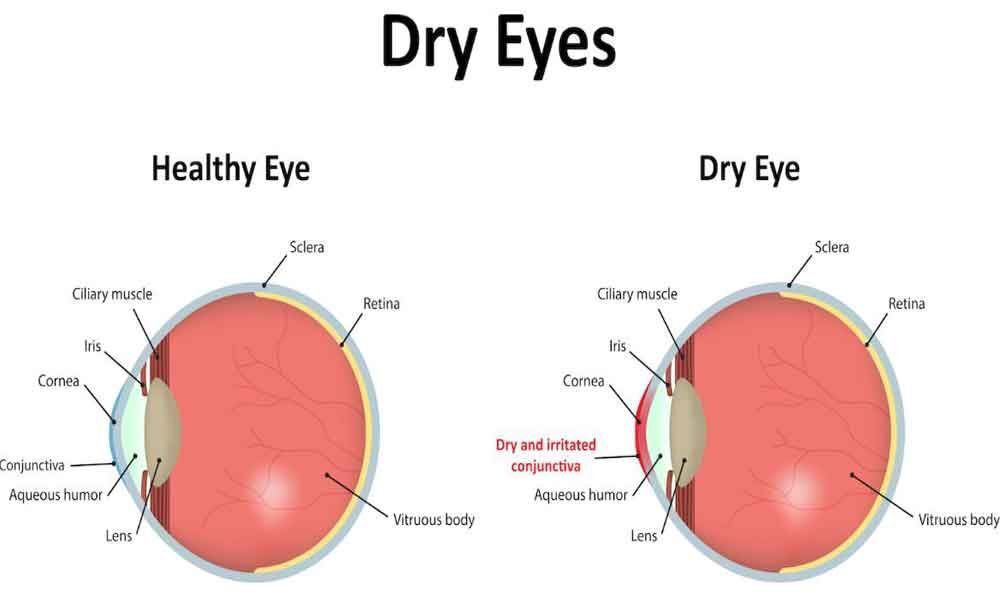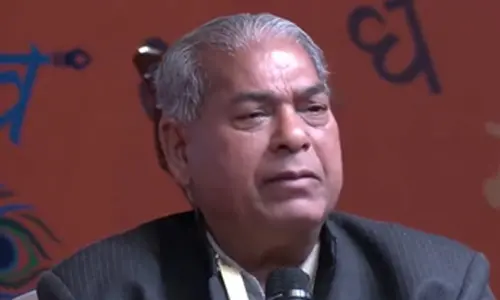Women at high risk of dry eyes during menopause

Menopause is a natural process that women experience as they age. It is not a disease or a problem, but it is a significant event in one’s life and comes with its caveats and issues.
Menopause is a natural process that women experience as they age. It is not a disease or a problem, but it is a significant event in one's life and comes with its caveats and issues. The term is used to describe any changes in a woman's body just before or after she stops menstruating, signifying the end of her reproductive period.
The process can cause drastic changes in woman's body with severe symptoms and affects not only to person's eye health, but also to her overall health in general. Other than psychological changes, some common overall health issues of menopause include hot flashes, night sweats and disturbed sleep.
Menopause has also a notable effect on eye health. One of the most common eye health problems faced by women going through the process is chronic dry-eye syndrome. It also raises risk for other problems like cataracts and glaucoma. Take a look at a few ways by which menopause can affect the eyes.
Dry Eye Syndrome
One of the side effects of menopause is chronic dry eye syndrome. Our eyes have a tear film that ensures they stay lubricated. The tear film's composition is a combination of water, oil, and mucus. Problems with this tear film cause dry eye syndrome.
A lot of hormonal changes take place during menopause, such as reduction in the production of estrogen and progesterone. These hormonal changes cause dry eye syndrome in post-menopausal women.
However, dry eyes are also considered a multi-factorial disease, meaning that there is more than one thing that may contribute to the condition.
Common causes for dry eyes
- Decreased tear production
- Tears drying up too quickly
- Ineffective tears
Fortunately, dry eyes syndrome can be treated by a wide range of solutions:
- Staying away from environments that trigger dry eyes
- Over-the-counter medications
- Eye drops
- Prescription medications
- Eye inserts
- Special contact lenses
- Alternative home treatments
- Limit on-screen time
- Eat a balanced and nutritious diet
Cataracts
Even though cataracts are not directly caused by menopause, studies have shown that the rate of cataracts is higher in postmenopausal women than men in the same age group. Normally, the disease often develops without any pain after the age of 60. Some symptoms of cataracts include cloudy vision, glare sensitivity, double vision, and difficulty seeing at nights.
Glaucoma
Glaucoma, like cataracts, normally shows up in older people regardless of their sex. It is the group of eye diseases that can cause irreversible damage to our sight, as the optic nerve gets damaged due to an increased level of eye pressure.
The risk factors of glaucoma include family history and age, and it is highly advised for people over the age of 40 to get a comprehensive eye examination every 1 to 2 years to ensure they stay safe from the disease.
If you're facing any problems with your eye health, you should always consult your ophthalmologist before trying out any solutions by yourself. Your ophthalmologist will ensure you get the best treatment for your specific individual case.
(Writer is Chairman of Centre for Sight Hospital in New Delhi)
















